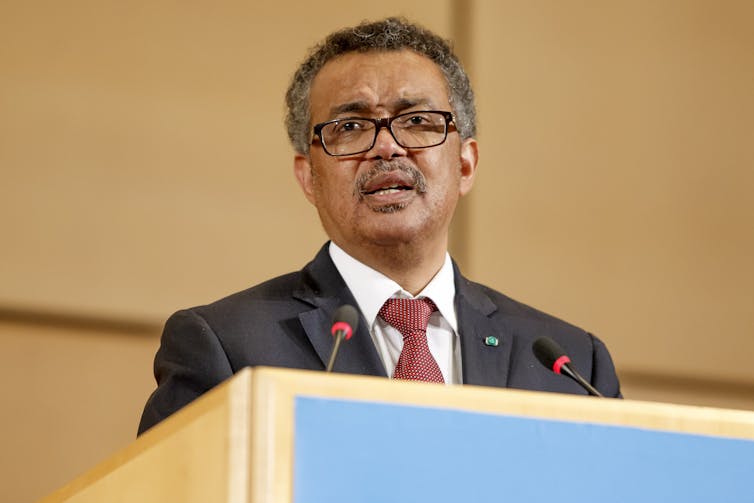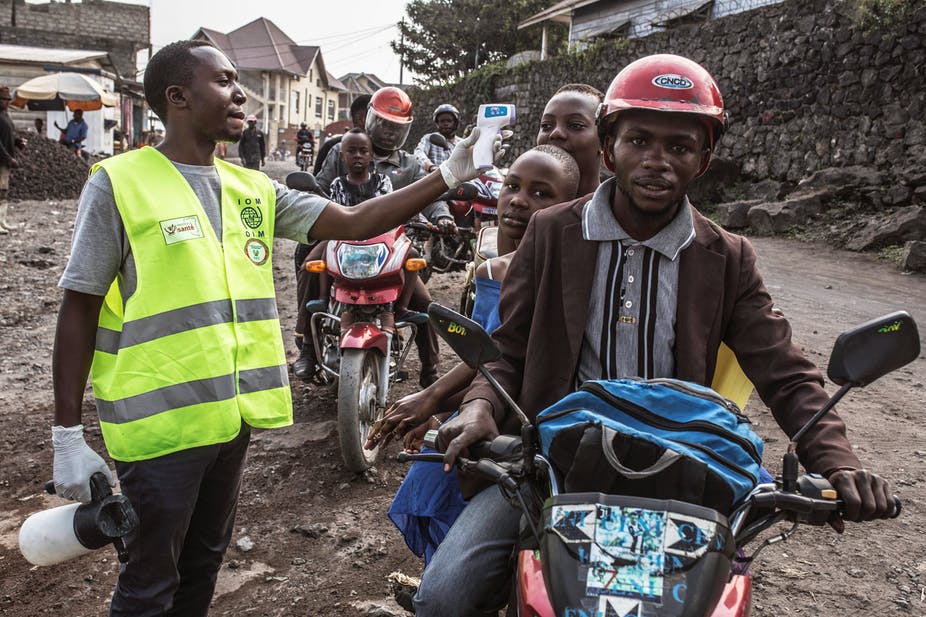On July 17, the World Health Organisation (WHO) declared Ebola in the Democratic Republic of the Congo a public health emergency of international concern (PHEIC). A PHEIC is the highest level of alert for an infectious disease. WHO director-general, Tedros Adhanom Ghebreyesus (known as Dr Tedros), declared Ebola a PHEIC on the advice of a group of independent experts known as the emergency committee. At the three previous meetings of the emergency committee on Ebola in the DRC, they advised against declaring a PHEIC.
Since the emergency committee last met in June, new Ebola cases have continued unabated (now at 2,500), the death toll has continued to rise (now at 1,700) and, most troubling of all, the disease has spread to Goma, a city of 2m people. So, for many, the PHEIC designation is welcome news. Indeed, some experts have been arguing that the criteria to declare a PHEIC have been met since the beginning of 2019.
What the PHEIC is and what it does
The International Health Regulations is a treaty intended to “prevent, protect against, control and provide a public health response to the international spread of disease”. It gives the director-general of WHO the power to declare a PHEIC and sets the criteria for doing so. To date, there had been four PHEICs declared: the 2009 H1N1 influenza, 2014 polio, 2014 Ebola, and 2016 Zika virus. When determining whether an event is a PHEIC, the director-general must consider several factors, including the risk to human health, the risk of international spread and the advice of the emergency committee.
The PHEIC declaration does not give WHO access to additional funding, but it can act as a call to the international community. This can mobilise political, financial and technical support, which is just as well as the next phase of the response will cost hundreds of millions of dollars, according to Dr Tedros.
Given the complex security and political matters affecting the response in the DRC, this declaration may motivate countries to bring the matter to other international forums. While not a requirement for action in UN bodies, the declaration of a PHEIC would be a clear signal from the world’s global health body that immediate and significant support is needed.
The international community must now step up and provide WHO with the resources it needs to bring this outbreak under control as soon as possible.

Trade and travel restrictions
A PHEIC also empowers the director-general to make temporary, non-binding recommendations. These attempt to minimise trade and travel restrictions on the affected states. Yet during previous PHEICs, countries have not consistently complied with these recommendations despite the risk such action poses to international, and their own, global health security.
During the 2014–16 Ebola outbreak in West Africa, many countries imposed restrictions on the affected area. This is despite the director-general issuing recommendations against such measures, which are ineffective and detrimental.
In declaring the PHEIC Dr Tedros said: “No country should close its borders or place any restrictions on travel and trade.” It is important that members respect this. Imposing trade and travel restrictions on the DRC might be a breach of international law and only serves to be counterproductive to the global response.
There has been a good deal of criticism of WHO for not declaring a PHEIC when the criteria were met and for not following the process laid down in international law when doing so. Now that a declaration has been made, it is important that member states respond appropriately. This means giving WHO the resources it needs to bring the outbreak under control and respecting the recommendations Dr Tedros has put in place.
Mark Eccleston-Turner, Lecturer of Law, Global Health, Keele University
This article is republished from The Conversation under a Creative Commons license. Read the original article.



